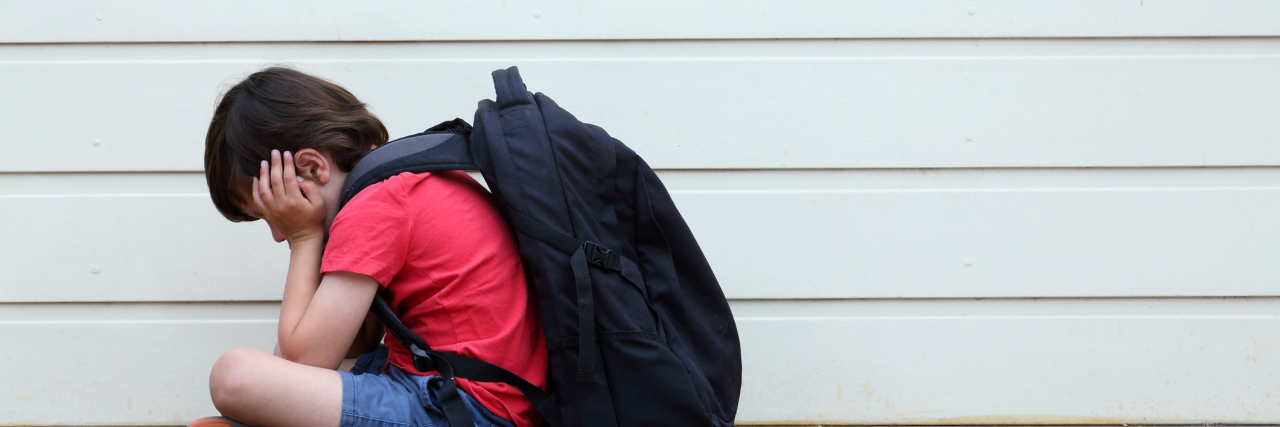My son is “that kid.” The one your child is probably talking about when he gets home from school. The kid who misbehaves. Who doesn’t listen. Who talks out of turn and tells the teacher “No!” He yells and cries and disturbs the class.
Your child will come home and tell you all of this and your thoughts may be running… who is this kid? Doesn’t he have any discipline at home? How is the school dealing with this? My kid better stay clear of him….
I am still in disbelief that “that” is my son! If you know our family, you know we discipline. We follow through on what we say. We are consistent with our reactions and discipline. We are doing everything we are supposed to do, working with multiple behavioral specialists, not to mention his medical specialists. We have been by the book, out of the box, over and under rocks… and still, we’re here.
There are days I don’t want to face his school. I am the parent of “that kid.” I feel ashamed, not because I don’t think we are doing the absolute best job we can, I am confident in that. But I am ashamed that I care enough to fear what other people think — parents and teachers. I care enough to fear, more importantly, that you may tell your child my son is a bad kid. That they should stay away from him. I promise you, he’s not a bad kid. He just has zero coping skills. And the other “that kid” has been in the hospital more times than he’s been at school. And the other “that kid” is autistic. The other “that kid” has no family that actually cares that he’s “that kid” so he gets the attention at school. It doesn’t matter the reason. It’s not our business to know. What is our business is what we tell our own kids about “that kid.”
Parents, on behalf of all the parents of “that kid,” we ask one simple thing: give them grace. Model for your kids what grace at school or the playground or practice can look like.
“Man, he sounds like he’s having a bad day. Hope he has a better day tomorrow.”
“We don’t know what his story is, but it sounds like it’s been pretty tough. Maybe he just need a friend. Have you said hello to him?”
“Maybe he doesn’t understand what he needs to do. Can you help him? Can you raise your hand and ask the teacher to help him?”
“Just keep being kind, don’t ever give up on kindness!”
It’s simple words that can make a big difference in how your child sees another person. One day, your child will not see him as “that kid,” he/she will see him as another person who just needs a bit more grace!
Getty image by MarkPiovesan

